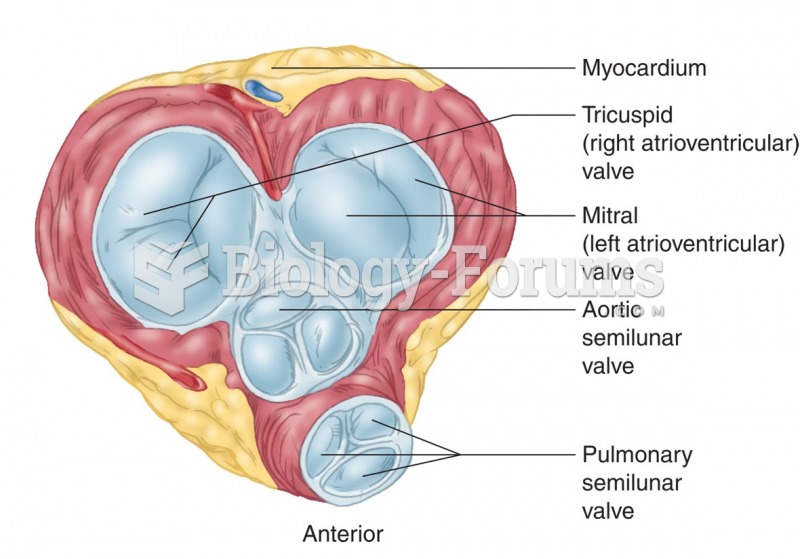|
|
|
Did you know?
The familiar sounds of your heart are made by the heart's valves as they open and close.
Did you know?
If you could remove all of your skin, it would weigh up to 5 pounds.
Did you know?
The average office desk has 400 times more bacteria on it than a toilet.
Did you know?
There are more nerve cells in one human brain than there are stars in the Milky Way.
Did you know?
People about to have surgery must tell their health care providers about all supplements they take.







